- Home
- Hilary Mantel
The Giant, O'Brien Page 2
The Giant, O'Brien Read online
Page 2
“Kill that noise,” Claffey said. They looked about them. Like a puppy, Jankin crept closer to the Giant’s side.
“They have broken you, I see,” the Giant said to the youths.
The town was nothing now; two streets of huts, dung heaps steaming outside their doors, their walls cracked and subsiding, their roofs sagging. It was a town with no pride left, no muscular strength to mend matters, no spark in the heart to make you want to mend. The rain had stopped, and the clouds were parting. The rutted road held standing pools, a white hazy sun glowing in their depths.
The children stared as they passed, scratching the bursting pods of their bellies. They gaped at the Giant, but they did not shout. They were weary of wonders. The wonder of a dish of potatoes and buttermilk, that would have made them shout; but for potatoes, it was too early in the year. If O’Brien had been the devil come to fetch them, they would have followed him, bug-eyed, hoping they might dine in hell.
“Where’s Mulroney’s?” Claffey said. “Where’s Mulroney’s tavern?”
“Where’s anything?” one of the youths said. “Mulroney died while you were away up the mountain. He took a fever. His house fell down.” He waved an arm. “There it is.”
What—that? That ruin slid into a ditch? Mulroney’s, where they used to hold the Court of Poetry, after the big house was destroyed? Mulroney’s, where there was no fiddling or singing or vulgar harping, but a correct recitation of the old stories in the old metres? It was a court of crumbling men, their faces cobwebbed, their eyes milky, their hands trembling as they gripped their cups. Bad winters killed them one by one, fluid filling the lungs that had breathed the deeds of kings.
“But that can’t be Mulroney’s!” Pybus burst out. “What will we do? The Giant must have strong drink! It’s a need in him.”
“It’s sauce to a good story,” Jankin said, having often heard this expression.
“Joe Vance will be here presently,” the Giant said. “We’ll do, till then.”
A woman appeared at the door of one of the cabins. She began to step towards them, skirting the puddles, though her legs and feet were bare and muddy already. She approached. The Giant saw her large grey eyes, mild and calm as a lake in August: the fine carving of her lips, the arch of her instep, the freedom of her bones at the joint. Her arms were white peeled twigs, their strong muscles wasted; a young child showed, riding high inside her belly like a bunched fist.
“Good day, my queen.”
She didn’t greet him. “Can you heal? I have heard of giants that can heal.”
“Who wants it?”
“My son.”
“What age?”
“Three.” Her hair was as fine as feathers, and the colour of ash. “And as for three years I have never eaten my fill, neither has he.” Blue veins, thin as a pen’s tracing, rippled across her eyelids and marbled her inner arm.
These, the Giant said to himself, are the sons and daughters of gods and kings. They are the inheritors of the silver tree amongst whose branches rest all the melodies of the world. And now without a pot to piss in.
Her hand reached up for his arm. She drew him down the street. “This is my cabin.”
Beside it, Connor’s was a palace. The roof was in holes and mucky water ran freely through it. The child was in the least wet part, wrapped in a tatter or two. In his fever, he kept tearing the rags from him; with practiced fingers, his mother wrapped them back. His forehead bulged, over sunken, fluttering eyelids. “He is dreaming,” the Giant said.
Squatting on her haunches, she gazed into his face. “What is he dreaming?”
“He is dreaming the dreams that are fit for a youth who will become a hero. Others babies dream of milk; his dreams are of fire. He is dreaming of a castle wall and an armoured host of men, himself at the age of eight as strong as any man grown, a gem set on his brow, and a sword of justice in his hand.”
She dropped her head, smiling. The corners of her mouth were cracked and bleeding, and her gums were white. “You are an old-fashioned sort, are you not? An antique man. If there were a gem on his brow, I would have sold it. If there were a sword of justice, I would have sold that too. What hope for the future, you’ll say, if the sword of justice itself is sold? But it is well known, almost a proverb, that a hungry woman will exchange justice for an ounce of bread. You see, we have no heroes in this town, not anymore. No heroes and no virtues.”
“Come away with us,” he said. “We are going to England. I am going to the great city of London—it seems that there a man can show himself for being tall, and they’ll pay him money.”
“Come away?” she repeated. “But you go tomorrow, do you not? Shall I leave my son unburied? I know he will die tonight.”
“You have no husband?”
“Gone away.”
“No mother or father?”
“Dead.”
“No brother or sister?”
“Not one alive.”
“Must you measure the ground where they dropped? Will you pace it every day?” He indicated the child. “Will you scour these rags to swaddle the child you are carrying? Come away, lady. There’s nothing left for you here. And we need a woman of Ireland, to sit beside me on my throne.”
“Who’s getting you a throne?”
“Joe Vance. He’s shown giants before. He’s got experience in it.”
“Ah, you poor man,” she said. She closed her eyes. “I never thought I should say that, to a giant.”
“Don’t fear. There is a sea voyage, but Vance has made the passage before.”
The child’s head jerked, once; his eyes flashed open. He reared up his skull. A thin green liquid ran from the side of his mouth. His mother put her hand under his head, raising it. He coughed feebly, snorted as he swallowed the vomit, then began to expel the green in little spurts like a kitten’s sneeze.
“What did he eat?” O’Brien asked.
“God alone knows. Here we live on green plants, just as in my grandfather’s time men ate grass and dock. The children have found something that poisons them, and it is always the ones who are too young to explain it—you could ask them to lead you to where they have plucked it, but by the time you know they are poisoned they are too weak to lead you anywhere. Or maybe—I have thought—it’s something we give them—some innocent herb—that we can eat, but which murders them.”
“That’s a hard thought.”
“It is. Very hard,” she said.
The Giant and his train enjoyed nettle soup, and before the craving became acute Vance appeared with his flasks of the good stuff. Squatting in the cabin of the woman, the Giant told these stories: the earl of Desmond’s wedding night, and how St. Declan swallowed a pirate. All the town had come in, some bringing a light and others a turf for the fire, listening to the tales and praying in between them. When the death agony arrived, O‘Brien took the child onto his knee, so that the rattle in his throat was interlaced and sometimes overlaid by his light, mellifluous tones, that tenor which surprised the hearers, coming as it did from a man so grossly huge. He tried to fit the cadence of his tale to the child’s suffering, but because he was a fallible person there were moments when it was necessary for him to pause for thought; at these times, the mud walls enclosed the horror of labouring silence, the scraping suspension of breath before the rasping cry which brought the babby back to life for another minute, and another. His body sleek with hair, his bones thick as wire, he looked like a mouse under O’Brien’s hand.
When the crux came, he cried out once, with that distant, stifled cry that hero babies make when they are still in their mothers’ wombs. It was cry of vision and longing, of the future seen plain. When O’Brien heard it he scooped the little body in one hand and placed it in his mother’s lap, where within a second the child became a corpse. Within another second a green sludge dripped from the nostrils, leaked out between the thighs, dripped like the sea’s leavings even from the cock curled like a shell in its rippling beach of skin.
At once, Pybus began to sing, his high-strung boy’s voice rising to the sky. The clouds had no call for it; they sent his song back, stifled, to die between the wasted shoulders and the mud walls. “At least you’re not short of water,” Claffey said, raising his eyes to tomorrow’s certainty of rain.
At dawn, the youths met them and escorted them to the end of the town. “Can’t you voyage with us?” the Giant asked. “You’re brave boys, and there’s nothing here for you.”
Joe Vance looked daggers.
“Thank you, sir,” the foremost youth said. “We are decided to remain here. A better age may come. Are you a poet, by the way?”
“In a poor sort,” the Giant said. “I can make a song. But who can’t? As for the old systems, the strict rules, I never learned them, and if I’m honest with you it’s a matter of training rather than aptitude. I believe there is no one of my generation who is confident in them. That was the use of Mulroney’s, you see, we met the old men there, and we would learn a little.”
“Let’s get on the way,” Joe Vance said. He shifted his feet.
“There was a time when friars walked the roads, disguised as rough working men: friars from Salamanca, from Rome, from Louvain. They have left me with the rudiments of their various tongues, besides a sturdy and serviceable Latin, and a knowledge of the Scriptures in Greek. Travelling gentlemen, all: never more than a night or two under the one roof, but always with time to spare for the education of a giant boy.”
Joe Vance reached up, and tugged at his clothing.
“A fly besets me,” the Giant said. He pretended to look about. “Or some hornet?”
Joe removed his hand, before he could be swatted. “A honey bee,” he said.
That night in his sleep, the Giant sat among the dead, and heard the voices of the old men at Mulroney’s: dry whispers, like autumn leaves rubbed in a bag.
two
Scotland, day: the child is alone in the field, the black ruts rising around him: flat on his belly on the damp ground, a vast sky swirling. His chin is on the earth, his body is blue in bits, where he has got his clothes wrong. It is his own task to dress himself, cover himself decently, and if he’s cold that’s his fault. He has been sent out to scare crows. In other places they have a doll to do it, made of sticks and old clothes. He has heard of it: English luxury. Here old clothes are not wasted.
To scare a crow, jump up, wave arms. Bugger it. Bugger it off.
Up a blade of grass a crawler goes. Little black feet on a sweet, edible stalk. He watches, his brow furrowing; it’s apt to cross your eyes. He puts out his finger. The crawler goes on to it, though it doesn’t make a feeling; it is too light, or his finger is too cold? His finger tastes of salt, earth, and shit.
He closes his palm. Then opens it, and teasing with his finger takes off one of the crawler’s legs. A time ago, when he first did this, he felt a hot wetness deep inside himself, as if water had begun to run there, above his belly button; but now when he does it he feels nothing at all. He pinches off leg two. He can count; they say he can’t, but he can. One leg, two leg, three leg, four. Count, yes; and read, by and by. The crawler goes round and round on his palm. Why didn’t it fly away? It had the chance. One leg off, it could have flown. It’s kicking now, with what’s left. It must have stayed because it liked him, because it was his friend, even despite what he’d done. He didn’t mean malice; he only wanted to see what would happen. He would like to give it back one leg, two legs, three. He would like to know, now, if it’s alive or dead. He breathes, John Hunter, and the words come out on his breath: “It was a trial. It was nothing cruel.”
Crows above. Foreign black hands stretching across the sky. He brushes the crawler away. He stands up. The wind’s tooth strikes at him, gnaws and gnaws. He flails his arms. John Hunter, he yells, John Hunter. Bugger off all crows. Over and over he shouts: John Hunter, bugger off crows.
three
My brothers are James, lately dead; John, dead; Andrew, dead. William is living but gone away. My sisters are Elizabeth, dead. Agnes, dead. Isabella, dead. Janet, dead.
I have also one sister living yet. Her name is Dorothea. We call her Dolly, when we are in a lighter mood.
Our family suffers from rotten lungs and rotten bones.
The John who is dead is not to be confused with me, the younger John. I say this because though in most cases the dead and the living are quite unalike, there are special circumstances when it is difficult to distinguish one from the other. There are many accounts, some from antiquity, of unfortunate people buried alive. Such burials may be the origin of quaint stories, stories of vampyres and ghouls and hauntings; of voices from underground, and the earth welling with fresh blood. But I have been in a small room with many a dead man and woman. I have slept under a dissecting bench in brother Wullie’s workroom, and I have hauled many a corpse to its final resting place on Wullie’s narrow bench. I can tell you that there are no ghosts. If there were, they’d haunt Wullie, would they not?
And haunt me. But don’t think it. It’s a slab of butcher’s meat you have to haul, head waddling and hands flapping; the rigor’s passed by the time their keepers knock at the door, and they’ve once again a semblance of flexible life, yet they’re heavy, they don’t help you, you have to drag them, and their faces are fallen in, their noses are rims, sharp edges of falling flesh, and their lips are invisible already, shrunk back against the gum.
So why are the living sometimes confused with the dead? Often the physician or surgeon is to blame, for his lack of care. But there are other occasions when even the keenest will not detect a pulse, yet the pulse exists. There are times when the breath does not lift the ribs, nor mist a mirror, nor stir a feather, but the corpse is breathing still. I have heard that sometimes when people fall into deep water, deep water that is very cold, they may remain chill and extinguished for an hour or more, and yet the spark of life is flickering within them; when warmth returns to their organs, when it spreads to their limbs and their heart and their muscles gather strength—why, then they may sit up, and speak, to the horror and astonishment of the mourners.
This is what I have heard: although, unfortunately, I have had no opportunity of making actual experiments upon drowned persons.
The house is stone, a farmhouse, built on ground that is thin and poor. In his family, he is the tenth child, and the last. When there is no room at the fire, he is kicked out into the yard. Gradually, as he sees his siblings carried to the churchyard, room is made, but by then he is not accustomed to hearthside comforts, and the company of those who remain makes him uneasy.
At six years old he is sent out into the fields to pick stones, and also to scare crows. The crows watch him for any advantage. They circle in the air, talking about him in their intelligent voices. Sometimes he thinks they are plotting to take out his eyes.
Once your eyes are out you can’t get a second pair. He pictures himself flipping on his back like a landed fish, his spine flexing and arcing, beating the ungiving ground with the flat of his palms. The first scream is practicing to come out of his mouth and the first stream of vomit. The crows have got his eyes in their beaks and are toddling over the ruts in the direction of East Kilbride.
There never was a man that wanted to be a great man ever was a great man. My present state of life I neither thought of nor could imagine. I am not a rich man, in fact I am poor, yet not poor in esteem; I say without boasting—pride not being in my nature—that the finest medical scholars of Europe have written me testimonials, and the most eminent surgeons in these islands and beyond crave for their sons a place at my table. And how, as the unmannerly Scots lad I am, could I have predicted this eminence?
While my brothers prospered at the academy, my school was the moor, hedge, and field. I asked questions to which few knew the answer and none cared to give it. Why do the leaves fall? Why do the birds sing? They would hit me across the ear and shove me out into the stark, away from the smell of humanity. In the end I preferred it so
, I liked the keen wind against the smoky fug, my silent company against their chattering. My outdoor life, the labour to which I was born, hardened my hands and my spirit. I was thought of small account, and believed I was. My eyes followed the turning leaf, the bird in flight, the moon’s phases.
His father, fifty when he was born and suffering with the gravel, frequently hit him across the ear. Mostly; whenever he saw him. This went on until he was thirteen, when his father died. By then he had acquired a high-shouldered look, and a habit of trying to see behind him.
four
London is like the sea and the gallows. It refuses none.
Sometimes on the journey, trapped in the ship’s stink and heave, they had talked about the premises they would have at journey’s end. They should be commodious, Vance said, and in a fashionable neighbourhood, central and well-lit, on a broad thoroughfare where the carriages of the gentry can turn without difficulty.
“My brother has a lodging in St. Clement’s Lane,” Claffey said. “I don’t know if it’s commodious.”
Vance blew out through his lips. “Nest of beggars,” he said. “As to your perquisites and your embellishments, Charlie, they say a pagoda is the last word in fashion.”
“A pagoda?” The Giant frowned. “I’d sooner a triumphal arch.”
“Let’s see when we get there,” Vance said. “I think we’ll call you Byrne, Charles Byrne. It’s more select.”
A lurch of the timbers, a fresh outswell of mould and fust; Jankin was sick—he had the knack and habit—on Claffey’s feet. Claffey kicked out. Hot words flew in the stinking space.
“Will you have a story?” the Giant soothed them. For the time must be passed, must be passed.

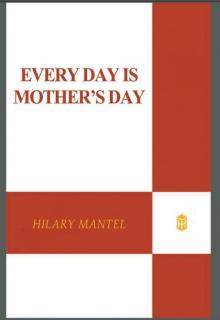 Every Day Is Mother's Day
Every Day Is Mother's Day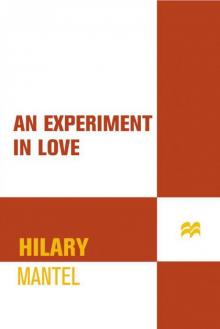 An Experiment in Love
An Experiment in Love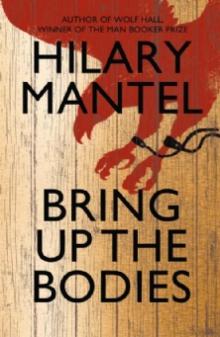 Wolf Hall
Wolf Hall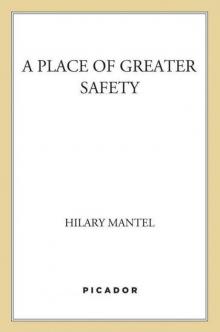 A Place of Greater Safety
A Place of Greater Safety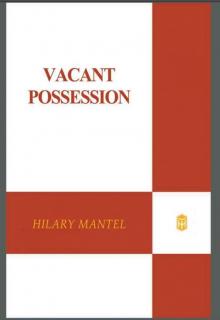 Vacant Possession
Vacant Possession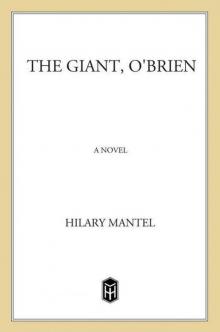 The Giant, O'Brien
The Giant, O'Brien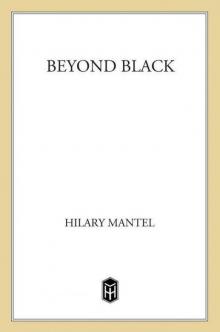 Beyond Black
Beyond Black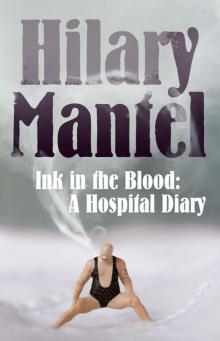 Ink in the Blood: A Hospital Diary
Ink in the Blood: A Hospital Diary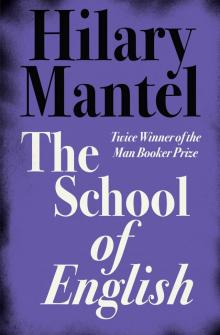 The School of English
The School of English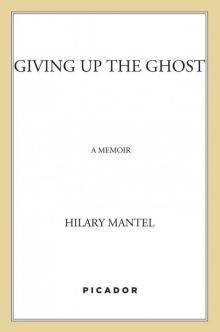 Giving Up the Ghost
Giving Up the Ghost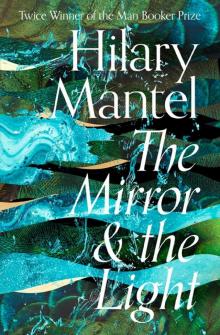 The Mirror and the Light: 2020’s highly anticipated conclusion to the best selling, award winning Wolf Hall series (The Wolf Hall Trilogy, Book 3)
The Mirror and the Light: 2020’s highly anticipated conclusion to the best selling, award winning Wolf Hall series (The Wolf Hall Trilogy, Book 3)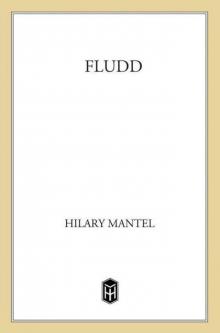 Fludd
Fludd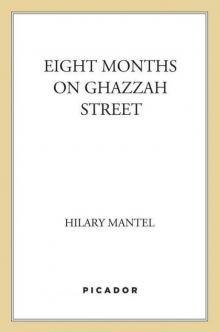 Eight Months on Ghazzah Street
Eight Months on Ghazzah Street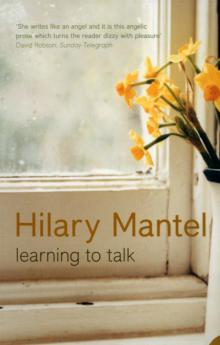 Learning to Talk
Learning to Talk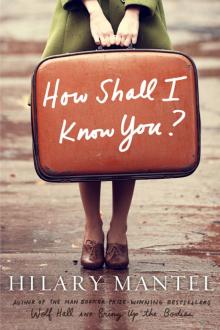 How Shall I Know You?: A Short Story
How Shall I Know You?: A Short Story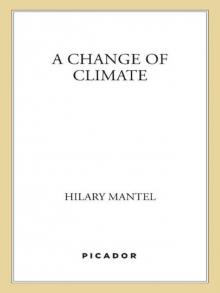 A Change of Climate
A Change of Climate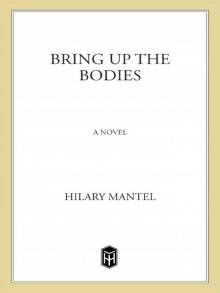 Bring Up the Bodies
Bring Up the Bodies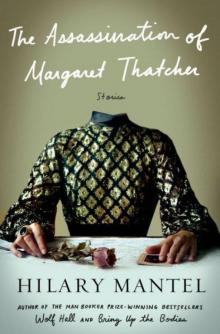 The Assassination of Margaret Thatcher: Stories
The Assassination of Margaret Thatcher: Stories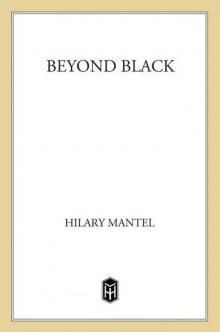 Beyond Black: A Novel
Beyond Black: A Novel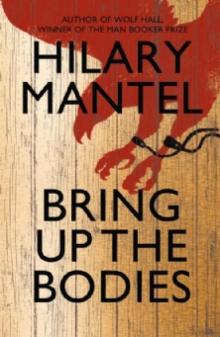 Wolf Hall: Bring Up the Bodies
Wolf Hall: Bring Up the Bodies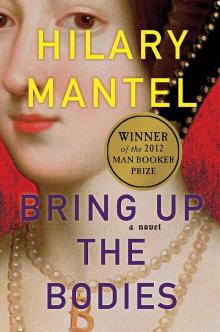 Bring Up the Bodies tct-2
Bring Up the Bodies tct-2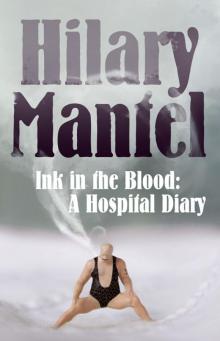 Ink in the Blood
Ink in the Blood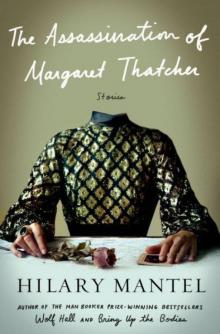 The Assassination of Margaret Thatcher
The Assassination of Margaret Thatcher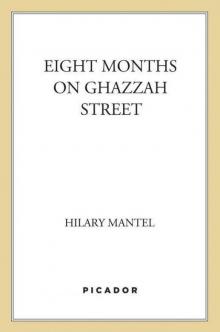 Eight Months on Ghazzah Street: A Novel
Eight Months on Ghazzah Street: A Novel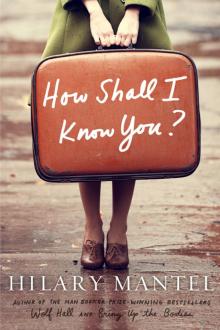 How Shall I Know You?
How Shall I Know You?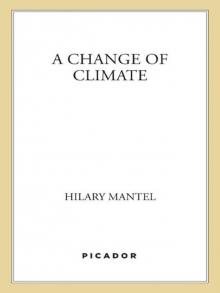 A Change of Climate: A Novel
A Change of Climate: A Novel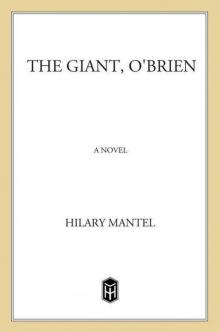 The Giant, O'Brien: A Novel
The Giant, O'Brien: A Novel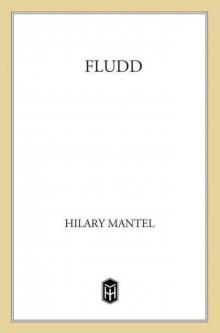 Fludd: A Novel
Fludd: A Novel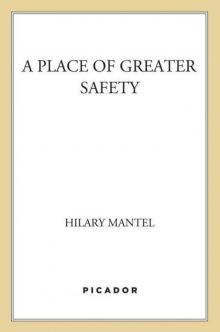 A Place of Greater Safety: A Novel
A Place of Greater Safety: A Novel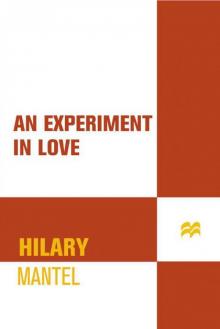 An Experiment in Love: A Novel
An Experiment in Love: A Novel